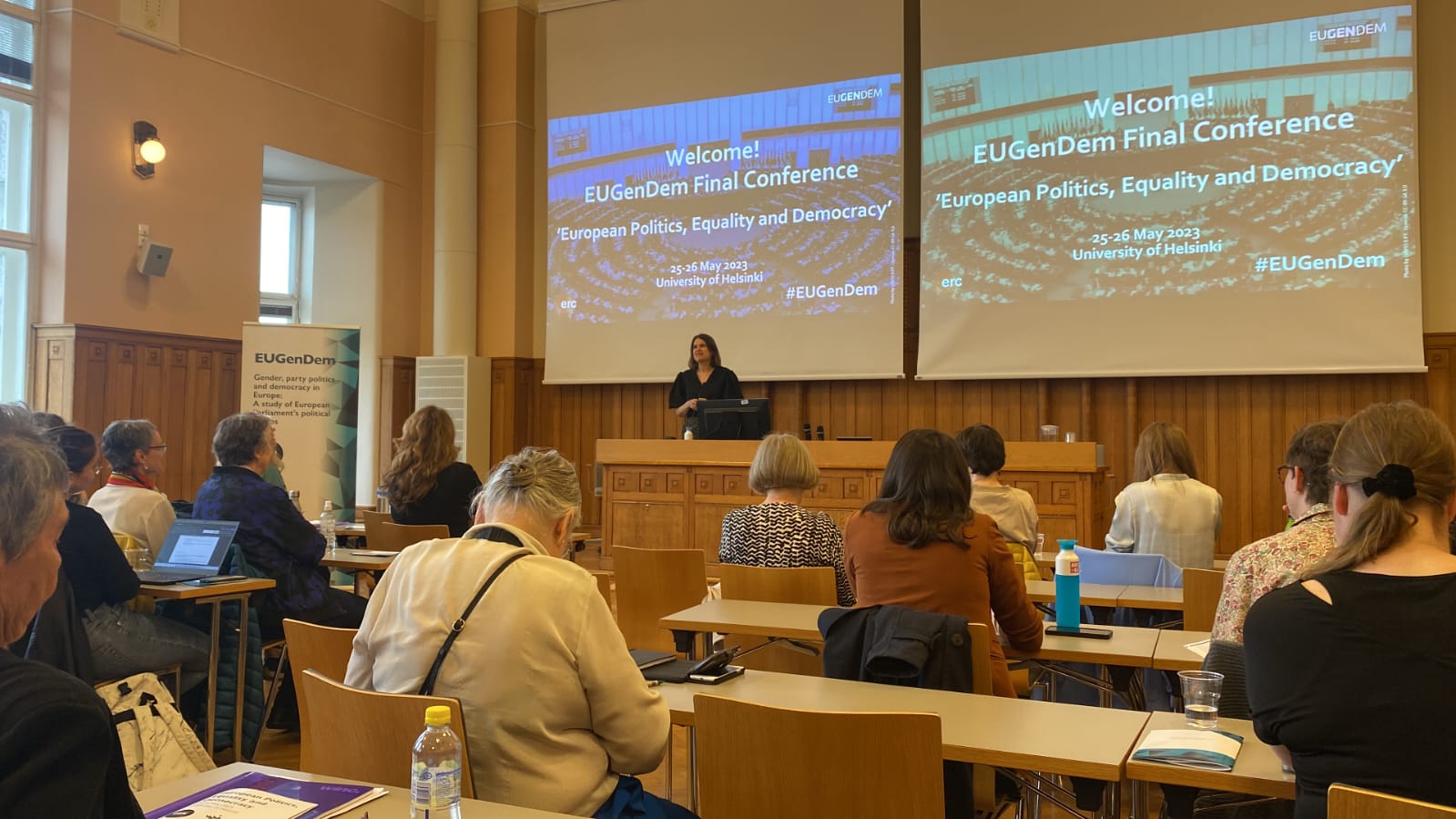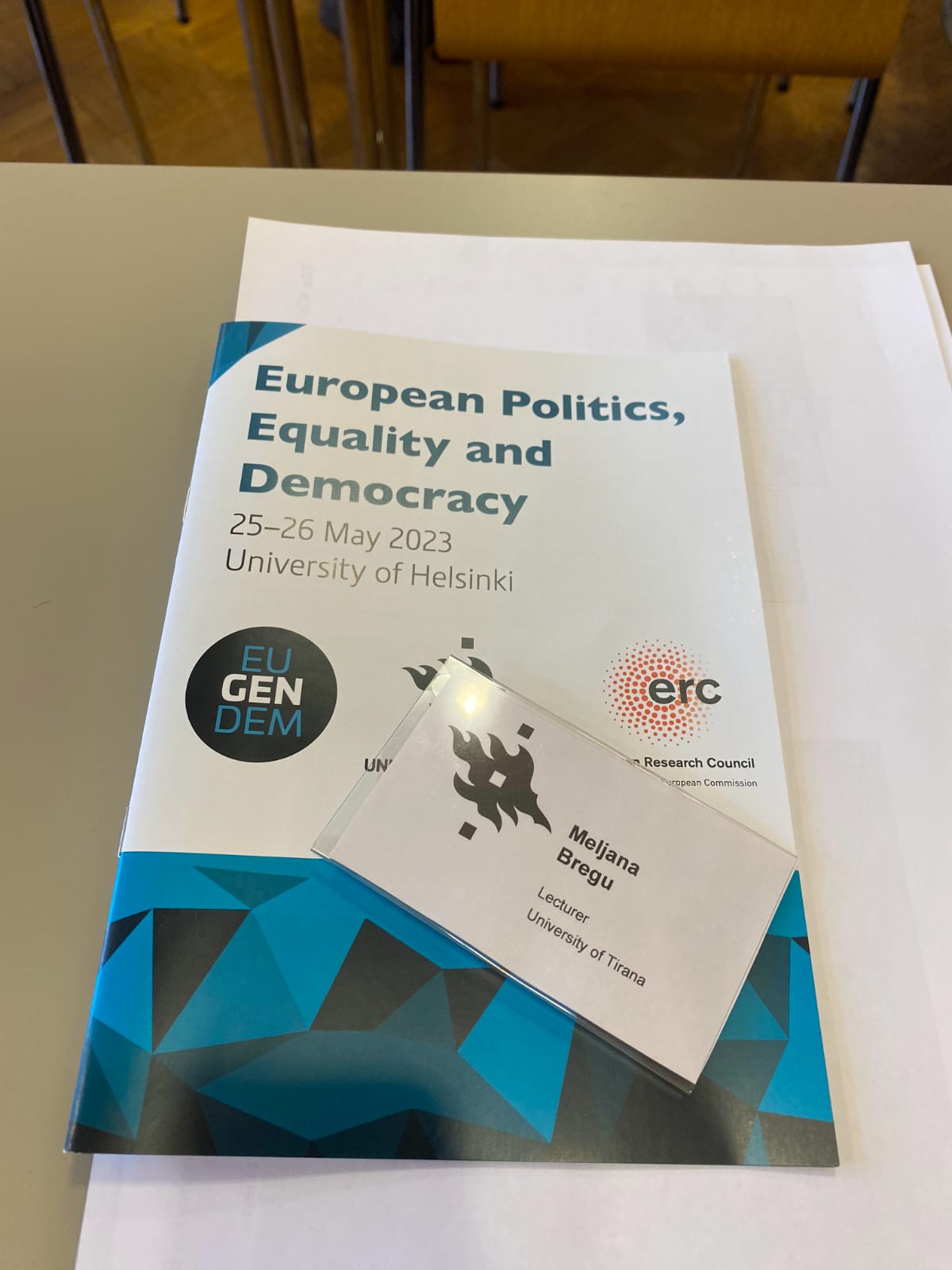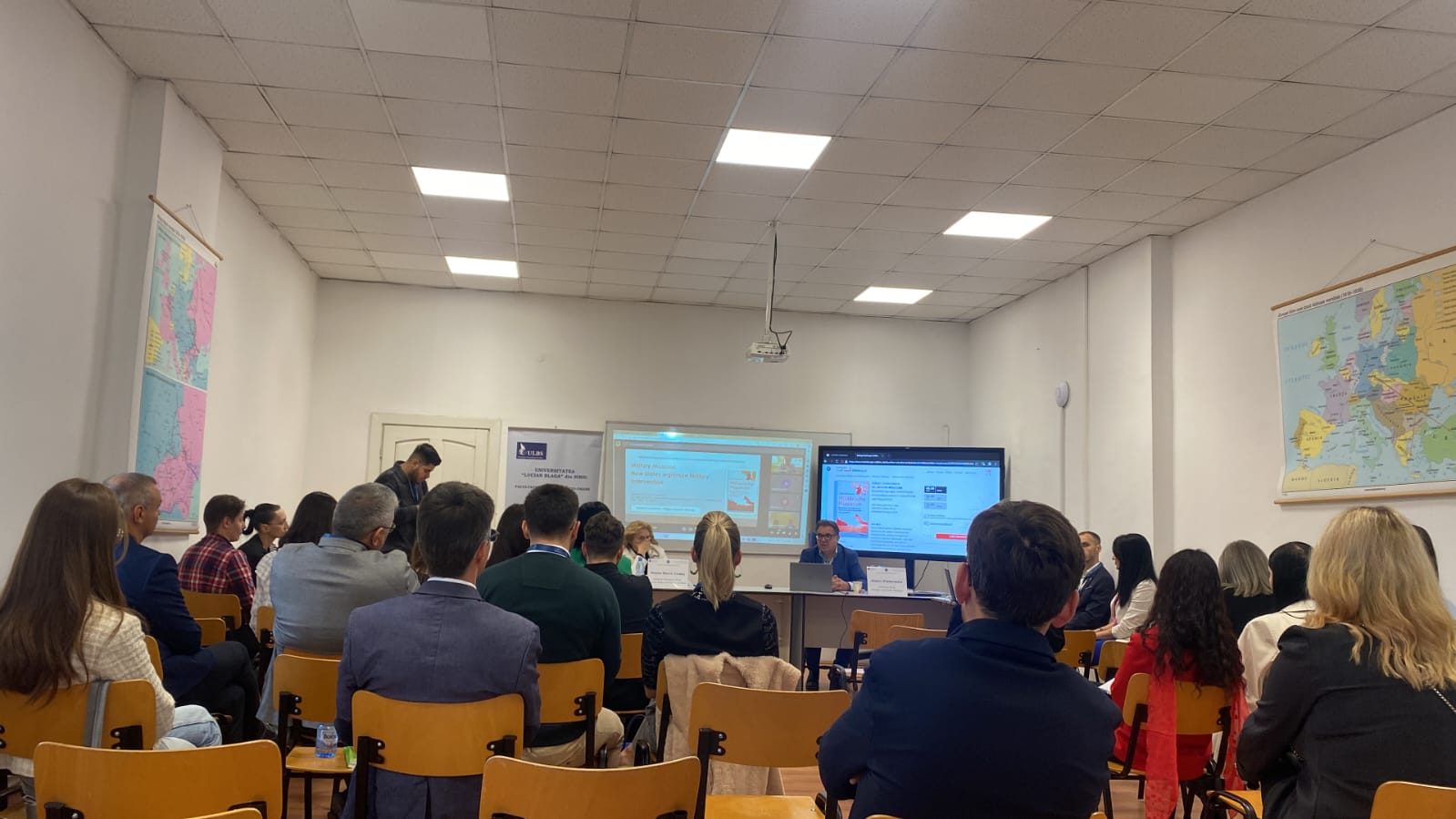PUblications
Publication in International Journals
Succession Contracts for Family Firms in Italy and Albania. A European Private International Law Approach
Authors: Fiorela Cekaj Ervin Pupe Carlo Venditti Raffaele Picaro Rea Ajazi Denard Veshi
ABSTRACT: In recent decades there has been an increase in longevity as well as a higher interest in the intergeneration of business transfer within a family. As a result, both European and national legislatures have been focusing on allowing this type of transfer before death. While the EU legislature stimulated this approach through the Commission Recommendation of 7 December 1994 on the transfer of small and medium-sized enterprises (Rec. 94/1069/EC), the Italian legislature fulfilled it only in 2006. Unfortunately, Albania does not provide any exception to the absolute invalidation of succession contracts. This paper does not aim to provide an extensive analysis of the various forms of succession of family firms in these two countries. This scientific contribution rather applies a legal comparison and a case-law study to investigate the impact of EU law on the national legislation by only focusing on the application of European private international law perspective. The contribution underlines the different approaches between these two countries since Italy has harmonized its own legislation with the EU soft-law and it has also ratified the Convention on the Law Applicable to Trusts and their Recognition of 1 July 1985. On the contrary, Albania has not ratified this international treaty, and its legislation is not aligned with the Rec. 94/1069/EC.
The EU as an Actor of Normative Power in the Western Balkans After 2018: The Case of Kosovo, Albania and North Macedonia
Author: Klodiana Beshku
ABSTRACT: This article aims to examine the capacity of the European Union (EU) to continue to promote its normative power through the implementation of its Enlargement policy in the region of the Western Balkans. First, it examines the EU strategy towards the Western Balkans regarding its Enlargement Policy and the repercussion on the Western Balkans’ perception of the European Union, which here is used as one of the denominators for the EU as a normative power. Then, using the Kosovo, Albania and North Macedonia cases, the article determines whether the EU continues to be considered a normative factor in the Western Balkans. Finally, it explores how the more inclusive Enlargement Policy followed by a harshened Conditionality has affected the future of the Western Balkans Region in the EU. Furthermore, this analysis sheds light on how the EU’s strategic vision has altered regarding the Region of the WB and how this vision meets the WB’s expectations. Following such an examination, both sides of the story are scrutinized in a comparative approach to establish if the EU remains a normative power for the Western Balkan countries, even after a long period of EU integration stagnation.
Online:
https://www.richtmann.org/journal/index.php/mjss/article/view/13295
Book - Refugees and the Law in Challenging Times – A Law and Economics Approach
Author – Denard Veshi
This book focuses on the economic analysis of refugee law and the protection of refugee rights. It offers a law and economics model applied to migration and states. The book focuses on the most critical ‘push’ factors that impact lawmakers in enacting and modifying asylum law. Furthermore, the book examines the economic advantages and disadvantages of a centralized supernational asylum law (acquis communautaire) that could, eventually, eliminate competition between legal orders in asylum law and do away with the negative externalities caused by ‘asylum shopping’.
Online:
https://link.springer.com/book/10.1007/978-3-031-61143-8
Implementation of the Commission Recommendation of 7 December 1994 on the Transfer of Small-and Medium-Sized Enterprises in Albania: A German or Italian Model?
Author - Enkelejda KOKA, Denard VESHI, Carlo VENDITTI& Fiorela CEKAJ
Abstract: In recent years, the European legislature and national parliaments have become more interested in allowing some types of intergenerational transfer before death. While the Albanian Civil Code establishes the invalidation of any succession agreement, other civil codes recognize some rights to dispose of or renounce the inheritance before death. This research investigates the possibility of implementing the Commission Recommendation of 7 December 1994 on the transfer of small-and medium-sized enterprises (94/1069/EC) in Albania by considering the Italian and German models. This contribution suggests that Albanian lawmakers could consider these models to align the Albanian legislation with the EU law.
Online:
https://kluwerlawonline.com/journalarticle/European+Review+of+Private+Law/32.5/ERPL2024040
Human Rights and Institution Building in Post-Socialist Albania. The Gender Perspective
Author - Juliana Marko Gjinko
Abstract – Central and Eastern European nations have undergone significant socioeconomic policy reforms since the collapse of their socialist centralized systems. Since 1992, the Republic of Albania has faced numerous significant obstacles, and at first, eliminating gender inequality was not given much priority. In addition to being a fundamental right and a shared ideal of EU institutions, gender equality is a crucial component that must be included in the legal systems of all candidate nations hoping to join the EU. Social exclusion in developing countries can take two forms: active or passive. Women’s needs and interests are typically overlooked because they are shut out of numerous aspects of life, including work, education, access to the legal system, the realization of their property rights, and so on. The Republic of Albania has created several laws, policies, and action plans about gender equality in the wake of the UN Convention on the Elimination of All Forms of Discrimination Against Women (CEDAW), in addition to policies against human trafficking, domestic abuse, closing the representational gap in politics and the economy, and other issues. In this essay, I examine Albania’s approach to assessing European standards and, if applicable, modify them to fit regional political customs and cultural norms. The best way to enforce laws, rather than just creating rules, models, and regulations, is to ensure that the body of law is in harmony with the culture in which it operates. In pursuing full EU integration, this is an overall effort to assess and contrast some of the approaches and measures Albanian representatives and society have taken to address the gender factor in the democratization process and institution-building.
Online:
The Regional Cooperation in the Western Balkans and the Open Balkan Initiative
Author – Meljana Bregu
The paper examines the efforts to enhance regional cooperation in the Western Balkans and how this has increased engagement between the EU and the Western Balkans.1 The regional initiatives are more present when the European Union (EU) shows little interest in the Western Balkans region. However, these efforts have yet to address all the concerns adequately and have not brought to life tangible results despite many political declarations. One of the most commented initiatives, like the Open Balkans, has caused concern in the region and caused tension between Kosovo and Albania over the past few years. The paper enlightens the challenges of regional cooperation during the last years, the contribution of this process in the integration process, and the role played by Albania. Also, the paper tries to analyze the success and failures of the “Open Balkan” initiative and the Regional Common Market. Furthermore, the paper framework examined the progress of regional cooperation initiatives and the region’s attention to the European integration process. Additionally, the paper seeks to determine whether regional cooperation is a viable alternative for the region or merely an external-driven initiative and the role of the EU in promoting regional cooperation
Online:
https://academicus.edu.al/nr29/Academicus-MMXXIV-29-191-206.pdf
The Role of the EU as a Normative Power on the Protection of Human Rights in Albania
Author – Meljana Bregu
Abstract – Protection of human rights is a core value for the EU as well as a precondition for candidate countries. The European Commission, through the annual progress reports, monitors the protection of human rights and compliance of domestic legislation with international human rights instruments, particularly the European Convention on Human Rights. EU membership has always been the most cherished objective and has shaped the implementation of structural reforms and the protection of human rights. The European Union has grown as a normative power fostering democracy and promoting human rights through the promise of future accession. After the fall of the communist regime Albania has made significant progress toward respect for civil and political rights but still now due to the last report of the Freedom House is defined as partly free. The respect for civil liberties, especially the freedom of expression is still one of the main problems in Albania. While the Constitution guarantees freedom of expression, the intermingling of powerful business, political, and media interests inhibits the development of independent news outlets. The paper aims to analyze how the EU perspective membership has influenced the protection of human rights, especially civic rights like the freedom of media and expression, but also its limits. Methodologically, will be analyzed and compare progress reports, public speeches and declarations, national integration strategies, and the revised enlargement strategy.
The role of Erasmus+ mobility program on higher education in Albania: The case of the University of Tirana
Author – Andi Pinari
Abstract – Albania’s higher education system has been through dynamic changes and challenges after the fall of the dictatorship in 1990. Till 2007 there were only state-owned universities, but starting from 2017 the higher education sector was liberalized. Connections with Erasmus+ as an ambitious EU program that has played an essential role in shaping the landscape of international education and fostering cross-cultural exchange has been made since the opening of the country. Universities made a lot of effort to become more open and to participate into internationals programs and initiatives. Erasmus, a flagship program of the European Union has played a pivotal role in transforming higher education and fostering international cooperation. The presence of Erasmus in Albania has been crucial for the internationalization of universities in Albania, but especially to students. Objectives This paper aims to explore the key objectives, components, and impact of the Erasmus+ program, with a particular focus on its contribution to educational mobility, intercultural understanding, and the development of a more integrated European community. The paper focuses on the impact of Erasmus in Albania, examining the program’s objectives, implementation, challenges, and the broader implications for the country’s educational landscape and cultural exchange.
Online:
Scientific Conference "Albanian Woman: From Tradition to Modernity"
The Conference was held in The framework of the EPPAL at the Faculty of History and Philology, (18 December 2024) with the participation of History Head Department, Eppal Coordinator and Team members, lecturers and students.
International Conference Participation
In the framework of the EPPAL Center of Excellence, the Coordinator Juliana Gjinko, Team members Meljana Bregu and Perseta Grabova have participated in different research forums to promote the Center and the research on the integration process of Albania.
Juliana Gjinko
The Impact of EU Conditionality on Albanian Politics
European Politics, Equality and Democracy, 25-26 May 2023 – Helsinki
https://www.helsinki.fi/en/conferences/eugendem-final-conference/programme
Dynamics of Enlargement in the Western Balkans. The Impact of EU Conditionality in Albanian Politics
Europe’s Pathways to (Dis)Engagement with the World, 3-5 May 2023 – Brussel
“At the Forefront of Integration: Albanian Generation Erasmus Impact and Perspectives”,
UACES 2023 Conference 11 September 2023
Meljana Bregu
The impact of transformative power of the EU in the Western Balkans
European Politics, Equality and Democracy, 25-26 May 2023 – Helsinki
https://www.helsinki.fi/en/conferences/eugendem-final-conference/programme
The Role of the EU as a Normative Power on the Protection of Human Rights in Albania
Human Security. Theoretical Approaches and Practical Applications” (HSTAPA), 27 October 2023 – Sibiu
https://conferences.ulbsibiu.ro/hstapa/2023-2/gallery-2023/
The EU Role as a Transformative Power in Albania
Europe twenty years after the 2004 enlargement of the EU: vices, virtues and future challenges, Center for International Research on Law, Culture and Power, 7-8 June 2024
Perseta Grabova
Cultivating Resilience: Sustainable Strategies in Western Balkan Higher Education Institutions for Climate Action
Annual conference of the society for risk analysis Europe (SRA-E), 2-5 June 2024, Athens
https://www.srae-athens2024.gr/




